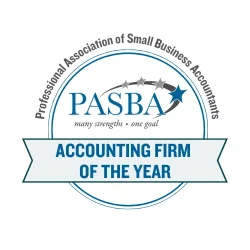Navigating the IRS regulations concerning meals and entertainment expenses can be a complex task for individuals and businesses alike. It’s essential to stay informed about the latest guidelines to ensure you are making accurate deductions and complying with tax laws. In this blog post, we will delve into the IRS regulations for meals and entertainment expenses for the year 2023, highlighting the exceptions and deductibility rules you need to be aware of.
Qualified Business Meals Expenses in 2023
Qualified business meal expenses are deductible; however, are generally subject to a 50-percent deduction limit, including, but not limited to expenses for:
- Food and beverages provided by a restaurant as a business meal
- Meals while travelling for business meetings and conferences.
- Meals while traveling for work.
- Office snacks and other foods items
- Business meals with clients
- Restaurant meals with less than half of company employees.
There are some meals, however, that are allowable as a 100-percent deduction including, but not limited to expenses for:
- Goods, services, and facilities that are treated as compensation.
- Meals invoiced to customers, as part of billing for a service.
- Meals reimbursed for moving expenses.
- Recreation and social activities for the benefit of employees who are not highly compensated.
- Food for company parties.
- Food purchased for the benefit of the employer, such as when requiring employees to work late.
- Goods, services, and facilities that the taxpayer makes available to the public.
- Goods and services that the taxpayer sells in a bona fide business transaction in full consideration for money or money’s worth.
- Goods or services that are includable in the income of a non-employee who receives the entertainment or prize as taxable income.
Entertainment Expenses in 2023:
Business-related entertainment expenses, including deductions related to entertainment facilities, are generally NOT deductible. However, if the entertainment is directly related to business or directly preceding or following a substantial business discussion, the expenses for entertainment can be 100% deductible if one of the following exceptions applies:
- Entertainment treated as compensation.
- Entertainment invoiced to customers, as part of billing for a service.
- Employee recreational expenses, including company parties.
- Entertainment available to the public.
- Entertainment sold to customers.
- Entertainment treated as nonemployee compensation or prizes.
It’s important to note that all these expenses must still meet the ordinary and necessary requirements of IRC §162 or IRC §212 and must be properly substantiated to qualify for deductions.
Understanding the IRS regulations for meals and entertainment expenses is crucial for individuals and businesses looking to maximize deductions while staying compliant with tax laws. The exceptions outlined in this blog post provide valuable insights into which expenses are fully deductible and which are subject to the 50-percent limit. To ensure accurate compliance, it’s advisable to consult with a tax professional or accountant who can provide guidance tailored to your specific situation. By staying informed and adhering to IRS guidelines, you can optimize your tax strategy and minimize potential issues during tax season.



